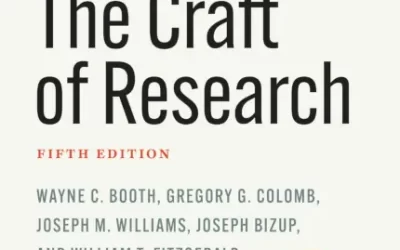
There have been many changes in the scholarly publishing world in recent years. The issue of open access and transparency has come to the forefront of publishing discussions, and there’s no denying that it is one of the most important topics facing the industry in 2020. We wanted to find out what changes and initiatives were taking place in the public sphere, pertaining to availability of published literature, public information, and media resources.
Fortunately, we were able to sit down with two staff members of one of our local public libraries to get their perspective. We interviewed two librarians from Chapel Hill Public Library: special projects coordinator Molly Luby and Luis Melodelgado. Our interview session took place in the months prior to the COVID-19 pandemic. While together, we discussed the value of public libraries to the communities they serve, the role of technology at the library, and new media and programming.
You can click on the links to listen to audio clips from our interview.
Located in the same county as our Technica Editorial headquarters, we were proud to learn that Chapel Hill Public Library is the busiest library per capita in NC.
There is a quote that serves as the library’s mantra: “Always people over things.” Molly explained that she loves public libraries because of the democratic ideals that are in place, making them establishments where people can have free access to information, technology, and other needs.
For Molly, it’s all about the people that come to the library and their interactions.
She has observed that public libraries are one of the few places where diversity is both encouraged and celebrated. To serve the many patrons of the library, several initiatives are now underway, and they all have something in common. As Luis puts it, these programs are meant to empower the community.
One of the library’s new projects is the Re/Collecting Chapel Hill podcast, which launched in September 2019. When we spoke, they were in the middle of the first season of recording, focusing on monuments and markers through the perspective of the Black community in Chapel Hill. The podcast has only grown more relevant due to the growing protests of the Black Lives Matter movement. The Re/Collecting Chapel Hill podcast was initiated with a mission of sharing history from the perspective of people whose stories have not been heard.
With the catchphrase “Community history from the inside out and the bottom up,” the podcast focuses on the narratives and perspectives of local people who have been truly impacted by historic events.
In a town with a vibrant music scene, we learned that Chapel Hill Public Library is at the forefront when it comes to offering digital music streaming services and opportunities to showcase local artists. When we met, the library’s new Digital Music Streaming service, Tracks, was about to launch. Tracks is a grant-funded project in collaboration between Chapel Hill Public Library and Chapel Hill Community Arts & Culture. Molly gave us a glimpse into the project, pointing out that other music-centric cities such as Austin and Seattle are working on similar projects.
Luis expressed his amazement at the ability for libraries to adapt. Technology has been shifting to meet the needs of people in ways that make their lives better and to alleviate some of the physical tasks of a human staff. Molly informed us that iPads are used to reserve library meeting rooms, and they now use an automated materials handler that they have lovingly dubbed “The Bookie Monster.” She noted that smartphones have had a large impact on libraries over the past decade, now that readers are accessing ebooks and digital audio books at an increasing rate.
When it came to naming trending literature, Molly and Luis were on top of it. For the past few years, Chapel Hill Public Library has tracked the most popular books of the year. We found it interesting that 2018 was the only year in the last five years that a fiction book made it to the top of the list.
From Luis’s observations, the public library is a hub for studying, analyzing, and talking about the future of the community. There are many task forces in place within the local government that are geared to address important questions, and the library is utilized as a meeting place for discussion of public issues.
What new adaptations and trends have you observed at your public library? Have you noticed changes in access to your library’s resources during the COVID-19 lockdown? Share your thoughts in the comments below.




